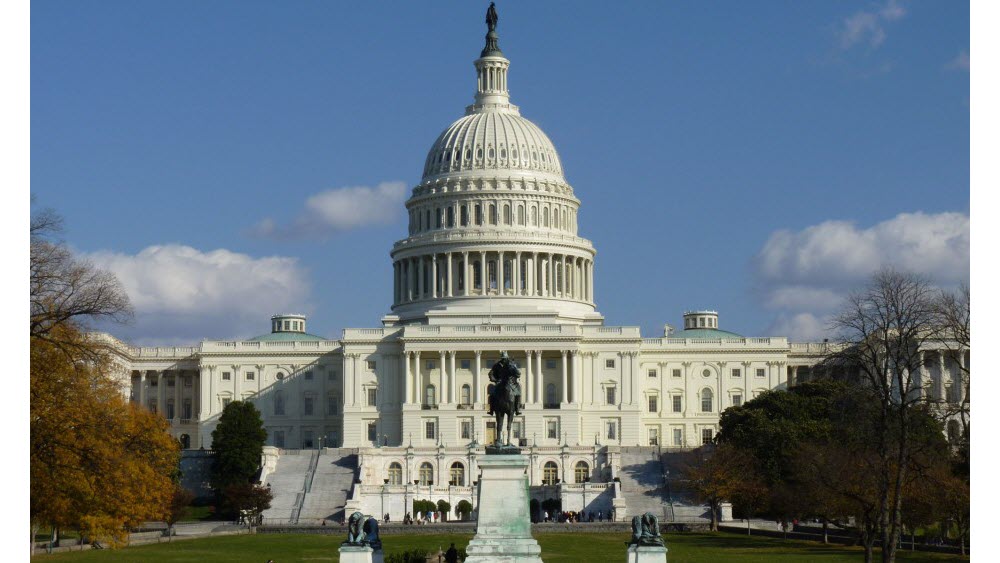Sen. Warner Ticked Off By Edge 'Arrogance'

The smarter way to stay on top of broadcasting and cable industry. Sign up below
You are now subscribed
Your newsletter sign-up was successful
Sen. Mark Warner (D-Va.) says he is still tech friendly, but he is adopting a tough-love approach to showing it given what he says is the arrogance of the edge combined with the ongoing exposure of its "dark underbelly."
The senator has been highly critical of the edge on issues like privacy and security, and pulled no punches in an interview with The Atlantic that his office was showcasing Thursday (Oct. 11).
Warner, a former tech exec himself, says it was the arrogance of Silicon Valley that rubbed him the wrong way. Warner signaled that the message Washington was getting from the edge was "You policy guys just shouldn’t worry. We’re a lot smarter. We’ll take care of things."
Related: Sen. Warner Says Facebook Security Needs Investigating
He said there was an infatuation for Silicon Valley in the Obama Administration--he did not single out Google, but could have--but that even then he was starting to see what he calls the "dark underbelly" of the Valley.
He says that translated to an "unedited" public square that often allowed extremist voices to connect with other extremists in a way that multiplied their volume, far beyond what they actually represent. I saw the proliferation of bots manipulating political conversation. And then there was also a point when I got pretty pissed off. I was seeing evidence of foreign intervention on the social-media platforms. I’ve met with Mark Zuckerberg a half-dozen times, decent enough guy, but there was such an arrogant kind of response to complaints: “Anybody who’d say that doesn’t understand.”
Warner told the magazine that while Sec. 230 of the Communications Decency Act, which exempts social media platforms for liability for third-party postings, may not make sense any more now that have of the country gets its news from Facebook. " Suddenly, that 1990s framework might not be exactly right."
The smarter way to stay on top of broadcasting and cable industry. Sign up below
He says he does not buy social media arguments that changing that exemption will lead to the "complete destruction of the public square."
He points to changes already made, including around child porn and sex trafficking. And, he adds: "You can't print how to make a bomb."
"How far should we go down the path of regulating these spaces?," Warner asks. "I think you can have that debate without seriously undermining the public square. And I think the companies are starting to realize it is in their self-interest to be part of this discussion."
Asked if it were not something of a fiction that tech platforms are a public square given how much manipulation and editing goes on that shapes the discourse, Warner agreed, and said there was another false premise that needed a little sunlight.
"They think these services are all free. They’re not free. They are taking your personal information, which gives them value to then sell to advertisers. But where’s the transparency about the price of this exchange? I mean, there’s less price transparency on the internet than there is in health care. And look how screwed up that market is," he says.
Warner is no big fan of the European Union's General Data Protection Rules (GDPR). He says those "layered on too much of a bureaucratic structure, and not in a user-friendly way." He says that is why he is still open to market-based solutions.
Asked about the dominance of Amazon, Warner turned the question to a commentary on Facebook and Google, suggesting Amazon was more about "successful execution" than a successful produce. Compare that to Google, he said. "Is there ever an ability to really break up their market dominance? Even if you’ve got a better app, you can never match them on data. Look at the number of companies that are going public within technology right now. It has dramatically declined. If you look at the app world, your whole plan is an exit to Facebook and Google. I’m not sure that’s the healthiest ecosystem."
Warner said Democrats, who were slow to take on Silicon Valley, are waking up to these issues, but he also concedes millennials are still pretty much in love with Silicon Valley and there is a risk of alienating them by being too touch on tech.
Contributing editor John Eggerton has been an editor and/or writer on media regulation, legislation and policy for over four decades, including covering the FCC, FTC, Congress, the major media trade associations, and the federal courts. In addition to Multichannel News and Broadcasting + Cable, his work has appeared in Radio World, TV Technology, TV Fax, This Week in Consumer Electronics, Variety and the Encyclopedia Britannica.

